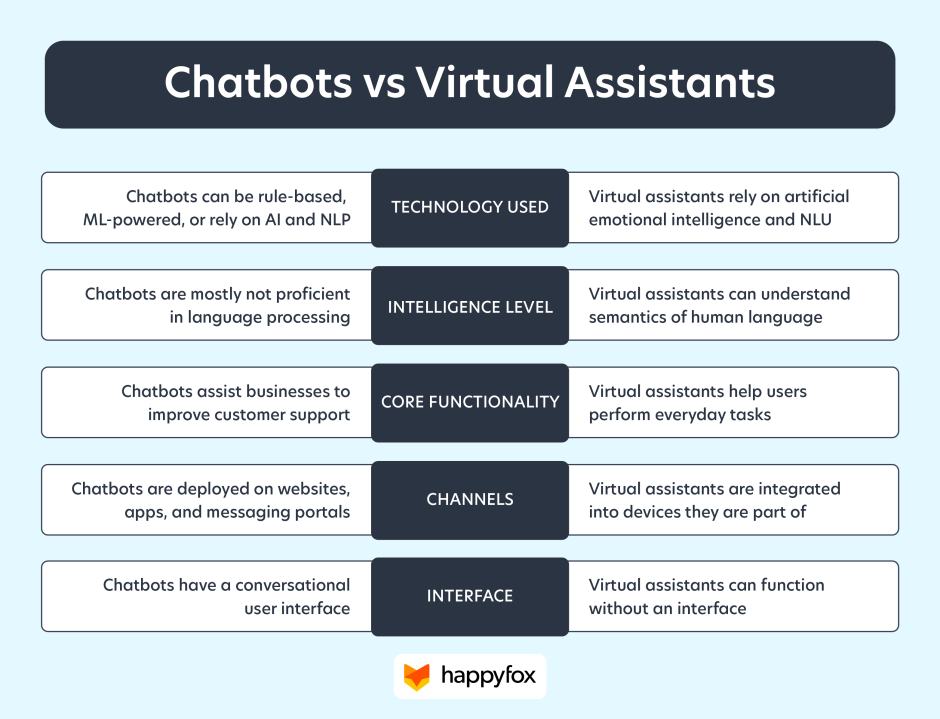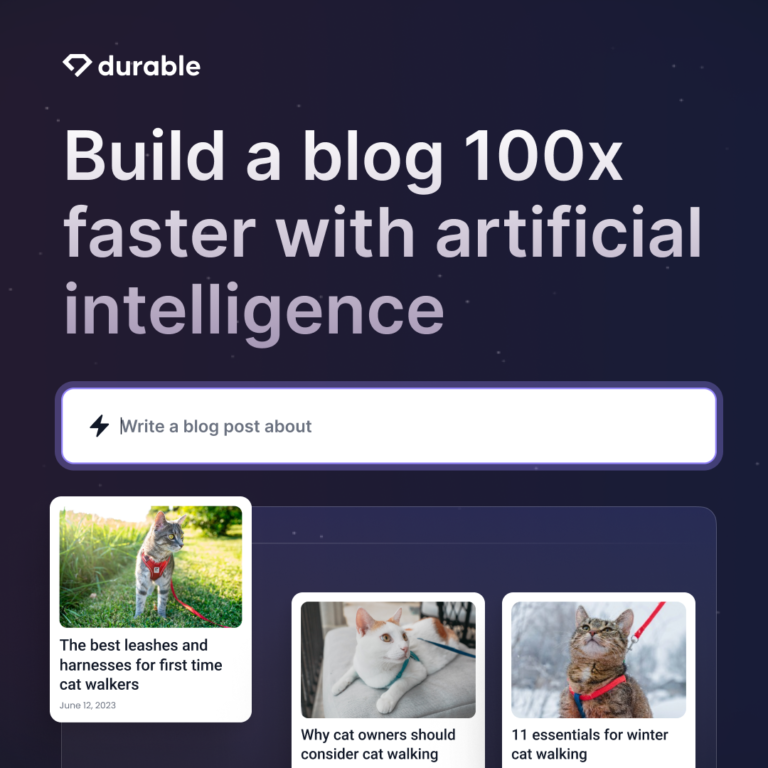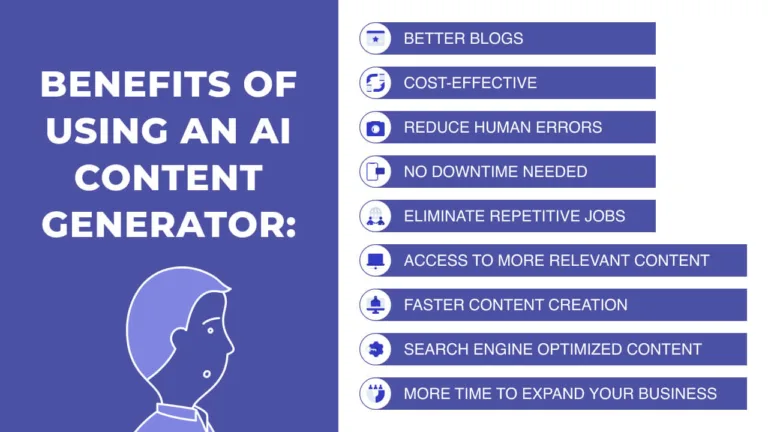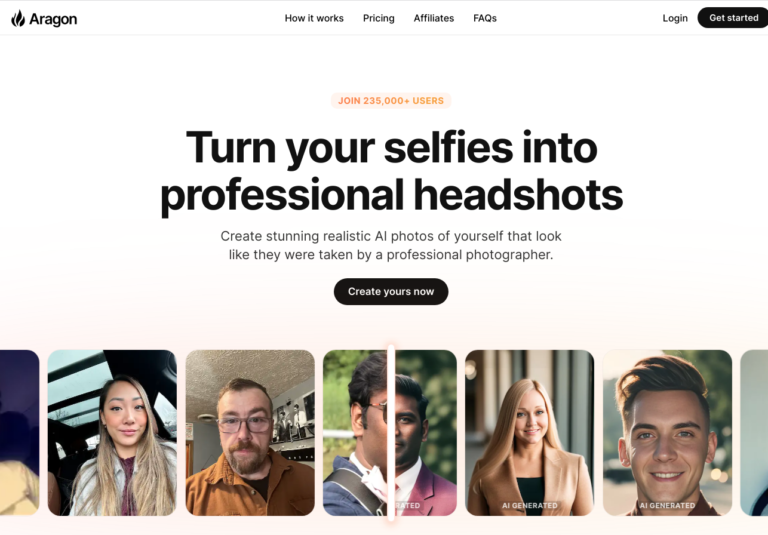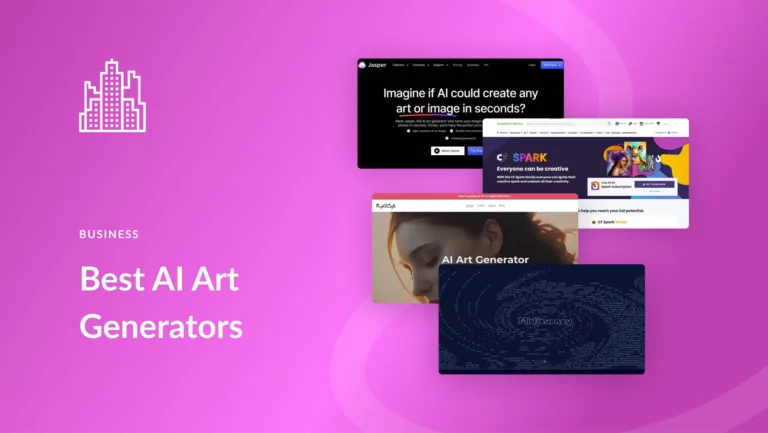How Can AI Generators Be Used In Chatbots And Virtual Assistants?
If you’ve ever interacted with a chatbot or virtual assistant, you may have marveled at their ability to understand and respond to your queries. But have you ever wondered how these intelligent systems work behind the scenes? One of the key technologies that powers chatbots and virtual assistants is AI generators. In this article, we’ll explore how AI generators are used in these applications and how they enhance the user experience.
Chatbots and virtual assistants have come a long way since their inception. Gone are the days of rigid, pre-programmed responses. With the help of AI generators, these intelligent systems are now able to generate dynamic and contextually relevant responses that mimic human conversation. This is achieved through the use of natural language processing (NLP) algorithms and machine learning techniques. By analyzing vast amounts of data, AI generators are able to understand the meaning and intent behind user queries and generate appropriate responses in real-time. This not only improves the accuracy and effectiveness of chatbots and virtual assistants but also creates a more engaging and interactive user experience. So, let’s dive deeper into the world of AI generators and discover how they revolutionize the way we interact with these intelligent systems.

AI Generators in Chatbots and Virtual Assistants: Revolutionizing the Conversation Experience
Artificial intelligence (AI) has become an integral part of our lives, transforming various industries with its capabilities. One area where AI has made significant advancements is in chatbots and virtual assistants. These AI-powered technologies are revolutionizing the way we interact with computers and devices, providing us with personalized and efficient conversation experiences. In this article, we will explore how AI generators are used in chatbots and virtual assistants to enhance their functionality and improve user satisfaction.
The Role of AI Generators in Chatbots
Chatbots are computer programs designed to simulate human conversation, providing users with information, answering queries, and assisting with tasks. AI generators play a crucial role in enhancing the capabilities of chatbots, enabling them to understand and respond to user inputs more effectively.
AI generators use natural language processing (NLP) techniques to analyze and interpret user messages. They can comprehend the context, sentiment, and intent behind each message, allowing chatbots to provide relevant and accurate responses. By leveraging AI generators, chatbots can handle complex conversations, understand colloquial language, and adapt to different user needs.
Improved Response Accuracy
AI generators employ advanced machine learning algorithms to continuously learn from user interactions and improve their response accuracy over time. They can analyze vast amounts of data, including previous conversations, customer feedback, and knowledge bases, to generate more precise and tailored responses.
This ability to learn and adapt enables chatbots to provide accurate and up-to-date information, enhancing the overall user experience. Whether it’s answering customer support queries, providing product recommendations, or assisting with bookings, AI generators empower chatbots to deliver valuable and relevant responses.
Conversational Flow and Context
One of the key challenges in developing chatbots is maintaining a smooth and natural conversation flow. AI generators help address this challenge by considering the context of the conversation and generating responses that align with it. They can understand the user’s previous messages, references to specific topics, and even detect sarcasm or humor.
By maintaining context and continuity in the conversation, chatbots equipped with AI generators create a more engaging and personalized experience for users. This enhanced conversational flow enables users to have more natural interactions with chatbots, leading to higher satisfaction and increased utilization.
Language Understanding and Generation
Language understanding and generation are fundamental aspects of chatbot functionality. AI generators excel in this area by leveraging NLP techniques to comprehend user messages and generate coherent and contextually relevant responses.
AI generators can accurately interpret user intent, even when messages are ambiguous or contain spelling or grammatical errors. They can also generate responses that align with the user’s intent, taking into account the context and desired outcome. This ability to understand and generate language effectively makes chatbots more capable of assisting users in various tasks and scenarios.
AI Generators in Virtual Assistants
Virtual assistants, such as Amazon’s Alexa, Apple’s Siri, and Google Assistant, have become household names. These AI-powered companions are designed to perform tasks, answer questions, and provide personalized assistance to users.
AI generators play a crucial role in enhancing the capabilities of virtual assistants, enabling them to understand and respond to user commands and queries more intelligently.
Personalized Recommendations and Suggestions
AI generators in virtual assistants can analyze user preferences, behavior patterns, and historical data to provide personalized recommendations and suggestions. Whether it’s suggesting a restaurant, recommending a movie, or offering a playlist, virtual assistants leverage AI generators to deliver tailored and relevant suggestions based on user preferences and context.
This personalized approach enhances user satisfaction and creates a more personalized and engaging experience with virtual assistants. Users can rely on virtual assistants to provide accurate and useful recommendations that align with their preferences and needs.
Task Automation and Integration
Virtual assistants equipped with AI generators can automate tasks and integrate with various applications and services. They can perform actions such as setting reminders, sending messages, making appointments, and controlling smart home devices.
By leveraging AI generators, virtual assistants can understand user commands and perform tasks more accurately and efficiently. This automation and integration capability simplifies users’ lives, allowing them to delegate repetitive or time-consuming tasks to their virtual assistants.
Continuous Learning and Improvement
AI generators in virtual assistants are constantly learning and improving based on user interactions and feedback. They can adapt to individual preferences, refine their understanding of user commands, and enhance their ability to provide accurate and relevant responses.
This continuous learning and improvement enable virtual assistants to become more intelligent and intuitive over time. They can learn user preferences, adapt to changing needs, and offer increasingly personalized and valuable assistance.
The Future of AI Generators in Conversational AI
The rapid advancement of AI technology and the growing demand for more sophisticated conversational experiences indicate a promising future for AI generators in chatbots and virtual assistants.
As AI continues to evolve, we can expect AI generators to become even more powerful and capable. They will further enhance chatbots and virtual assistants’ ability to understand and respond to user inputs, resulting in more human-like and engaging interactions.
Additionally, AI generators will contribute to the development of more advanced features, such as emotion recognition, multi-language support, and context-awareness. These advancements will further elevate the conversation experience, making chatbots and virtual assistants indispensable companions in our daily lives.
In conclusion, AI generators are revolutionizing the conversation experience in chatbots and virtual assistants. They improve response accuracy, enable smooth conversational flows, and enhance language understanding and generation. With the continuous advancements in AI technology, we can expect AI generators to play an even more significant role in shaping the future of conversational AI.
Key Takeaways: How can AI generators be used in chatbots and virtual assistants?
Chatbots and virtual assistants can greatly benefit from the use of AI generators, which are powerful tools that can generate human-like text responses. Here are some key takeaways on how AI generators can be used in chatbots and virtual assistants:
- Improved Conversational Experience: AI generators can enhance the conversational experience by providing more natural and human-like responses, making interactions with chatbots and virtual assistants feel more authentic.
- Efficient Customer Support: By using AI generators, chatbots and virtual assistants can provide quick and accurate responses to customer queries, reducing the need for human intervention and improving customer satisfaction.
- Language Translation: AI generators can be used to translate text in real-time, allowing chatbots and virtual assistants to communicate with users in their preferred language, breaking down language barriers.
- Content Generation: AI generators can assist in creating content for chatbots and virtual assistants, such as product descriptions, FAQs, and blog posts, saving time and effort for businesses.
- Continuous Learning: AI generators can be trained to improve their responses over time, learning from user interactions and adapting to provide more personalized and relevant information.
Frequently Asked Questions
How do AI generators enhance chatbots and virtual assistants?
AI generators play a crucial role in enhancing the capabilities of chatbots and virtual assistants. These sophisticated algorithms are designed to generate human-like responses and provide more dynamic interactions. By leveraging AI generators, chatbots and virtual assistants can understand and respond to user queries in a more intelligent and contextual manner.
The AI generators analyze vast amounts of data, including text, images, and even audio, to generate relevant and accurate responses. This enables chatbots and virtual assistants to handle complex conversations and adapt their responses based on the user’s intent and context. With AI generators, these conversational agents can provide more personalized and engaging experiences for users.
Can AI generators improve the accuracy of chatbot responses?
Absolutely! AI generators can significantly enhance the accuracy of chatbot responses. These algorithms are trained on large datasets, which allows them to learn patterns and generate contextually relevant answers. By continuously learning from user interactions, AI generators can improve their response accuracy over time.
AI generators can also help chatbots handle ambiguous or vague queries. They can analyze the context and intent behind the user’s question, even if it is not explicitly stated, and generate appropriate responses. This level of accuracy ensures that chatbots can provide valuable and helpful information to users, enhancing their overall experience.
What are the benefits of using AI generators in chatbots and virtual assistants?
Using AI generators in chatbots and virtual assistants offers several benefits. Firstly, these algorithms enable chatbots to provide more natural and human-like conversations. This creates a more engaging and interactive experience for users, increasing their satisfaction and trust in the system.
Secondly, AI generators can handle a wide range of queries and provide accurate responses, even in complex or ambiguous situations. This ensures that users receive the information they need, regardless of the complexity of their questions. Additionally, AI generators can learn and adapt over time, improving the overall performance and accuracy of chatbots and virtual assistants.
Are there any limitations to using AI generators in chatbots and virtual assistants?
While AI generators offer significant advancements in chatbot and virtual assistant technology, there are some limitations to consider. One limitation is the potential for generating biased or inappropriate responses. AI generators learn from the data they are trained on, which means they can also inherit any biases present in that data.
Additionally, AI generators may struggle with understanding nuanced or context-specific queries. They rely on patterns in the data they are trained on and may not capture the full meaning or intent behind certain questions. However, continuous improvements and advancements in AI technology are addressing these limitations to ensure more accurate and unbiased responses.
How can AI generators be integrated into existing chatbot and virtual assistant platforms?
Integrating AI generators into existing chatbot and virtual assistant platforms involves a few steps. First, the AI generator algorithm needs to be trained on relevant datasets to ensure it can generate accurate and contextually relevant responses. This training process typically involves using large amounts of data and fine-tuning the algorithm to optimize its performance.
Once the AI generator is trained, it can be integrated into the chatbot or virtual assistant platform. This integration involves connecting the AI generator to the system’s conversational flow, enabling it to process user queries and generate responses. The integration process may also involve fine-tuning the AI generator based on the specific use case and requirements of the chatbot or virtual assistant.
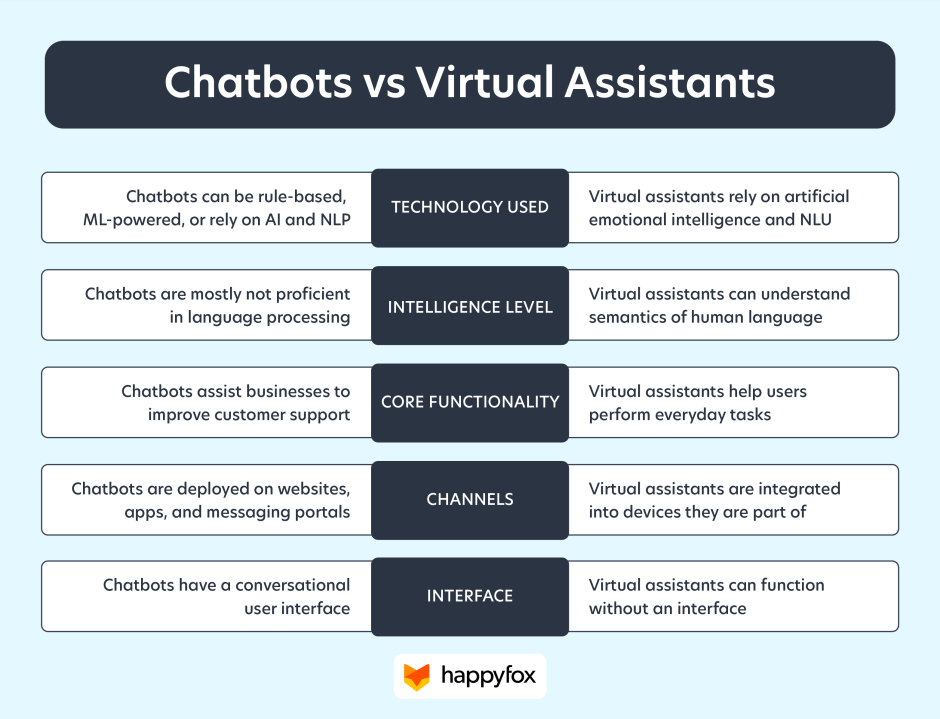
Final Thought: Harnessing the Power of AI Generators for Chatbots and Virtual Assistants
As we wrap up our exploration of how AI generators can be used in chatbots and virtual assistants, it’s clear that these technologies have the potential to revolutionize the way we interact with technology. By leveraging the power of artificial intelligence, chatbots and virtual assistants can become more intelligent, intuitive, and responsive, providing users with a seamless and personalized experience.
One of the key advantages of AI generators is their ability to generate human-like responses and natural language, enabling chatbots and virtual assistants to engage in more meaningful and interactive conversations with users. This not only enhances user satisfaction but also improves the overall user experience. Whether it’s answering customer queries, providing personalized recommendations, or assisting with tasks, AI generators can elevate the capabilities of chatbots and virtual assistants to new heights.
Moreover, by incorporating AI generators into chatbots and virtual assistants, businesses can streamline their operations and enhance efficiency. These technologies can handle a wide range of tasks, from automating customer support to managing appointments, freeing up valuable time and resources for businesses to focus on strategic initiatives. With AI generators, chatbots and virtual assistants can learn from user interactions and continuously improve their responses, ensuring that users receive accurate and relevant information.
In conclusion, the integration of AI generators in chatbots and virtual assistants opens up a world of possibilities for enhancing user experiences, improving productivity, and driving business growth. As technology continues to evolve, we can expect to see even more advanced and sophisticated AI-powered solutions that will further transform the way we interact with these intelligent virtual entities. So, buckle up and get ready for a future where chatbots and virtual assistants become indispensable companions in our everyday lives.
